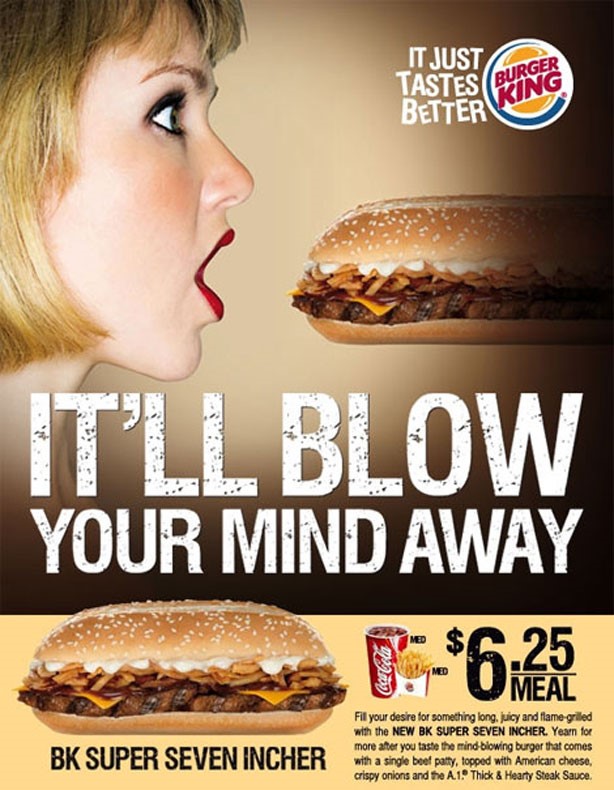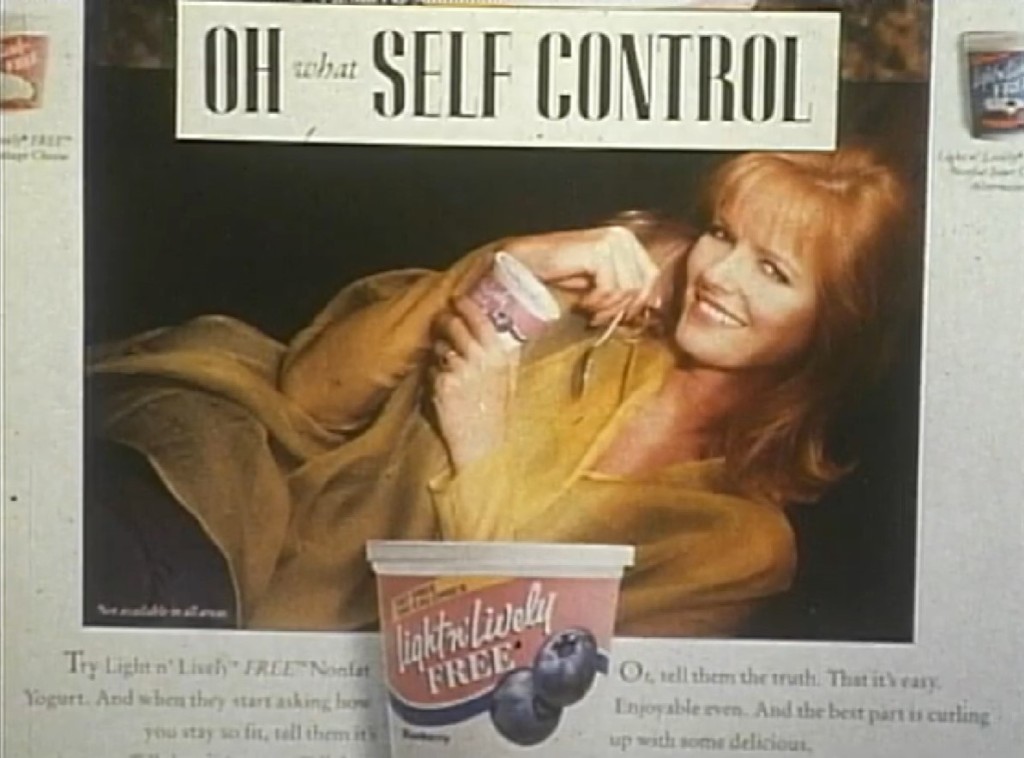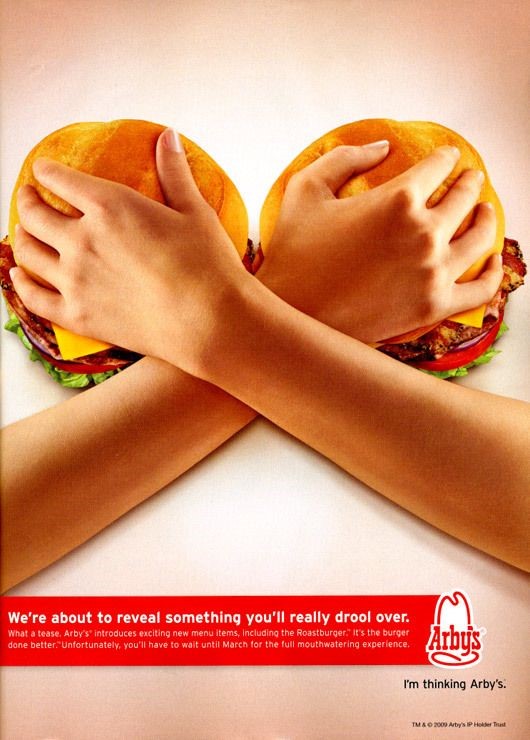The Super Seven-Incher

Photo Courtesy of globalvoicesonline.org
In 2009, Burger King’s ad for a “Super Seven Incher” sandwich caused a media sensation. When I saw the ad online I had many thoughts, some of which, I must confess, were not entirely related to the idea of a cheap beef patty.
The advertisement features a woman: a young, blonde, red-lipped, gaping-mouthed and wide-eyed woman. Her cheeks are blushed and although not making eye contact with the “long, juicy and flame-grilled” burger about to penetrate her open mouth, she looks rather startled. Are we surprised? Not really, it’s apparently going to “Blow [her] Mind Away.”
Over the past decade, the conflation of food and sex is a technique that has become increasingly popular among advertisers. It is a strategy that has become so mainstream that we are, to a large extent, desensitized to how absurd it actually is. The message in the Burger King advertiement is pretty simple, right? Food is sex. However, beneath that frosted layer of the sales pitch, these advertisements are far more complex in how they sell food as a substitute for sex.
Food and Abstinence

Photo courtesy of kanopystreaming.com
Advertisements that say “food is sex” are both dangerous and pervasive – particularly for young girls who are used, unsurprisingly, far more as sexual objects in food ads than their male counterparts. The logic is compelling: if food is sex, then the good girl becomes the girl who doesn’t eat. The non-sinner is the girl who keeps her appetite under control and abstains from the immorality of eating a piece – or two – of pie.
In fact, Jean Kilbourne persuasively argues in her award-winning documentary, Slim Hopes: Advertising and the Obsession with Thinness (1995) that “thinness is today’s version of virginity.” It used to be that when girls talked about their good “self-control,” they were referring to their sexual activity, not their food patterns. Now, we assume that if a woman did something “bad” she broke her diet, not that she did something promiscuous.
The 21st century “waif” model body – which more than 90% of the population doesn’t have – is what is portrayed in 90% of the 300-3,000 advertisements we see every day. Thinness is fashionable. Yet, this trend is so interesting because in a time when women are becoming more powerful economically, politically and socially, their body size is ironically becoming smaller, weaker and frailer.

Photo courtesy of www.pinterest.com
Fat-Shaming: Temptation and Salvation
Being ashamed for having a big appetite is unhealthy and destructive. Of course, I’m not justifying gluttony and greed – they are just as much of a problem as not eating at all – but rather, I am suggesting that there is something wrong with the idea that if the thin girl is the good girl, then the fat girl is the bad girl.
The tremendous prejudice against fat women in our society and the belief that eating too much justifies moral censure and guilt is inherently wrong. According to Kilbourne, half of all adult women in the U.S. are dieting. The weight loss industry cleverly plays on the notion that if food temptation is the sin, then the diet is the salvation. They see themselves as women’s saviors, but what exactly are they saving women from?
Legs Closed to Lips Closed
One of the most deceiving messages that advertising spreads is that one will achieve an impossible beauty standard by becoming obsessed with thinness. It perpetuates a culture that supports the perversion of one’s diet and the dislike of one’s body. This will continue to stay as the norm until society recognizes that the conflation between food and sex that advertisers have subtly (or not so subtly) normalized is wrong. When this is acknowledged, it is the hope that we can depart from the reality that in order for a girl to be valued, she must keep her lips closed.

